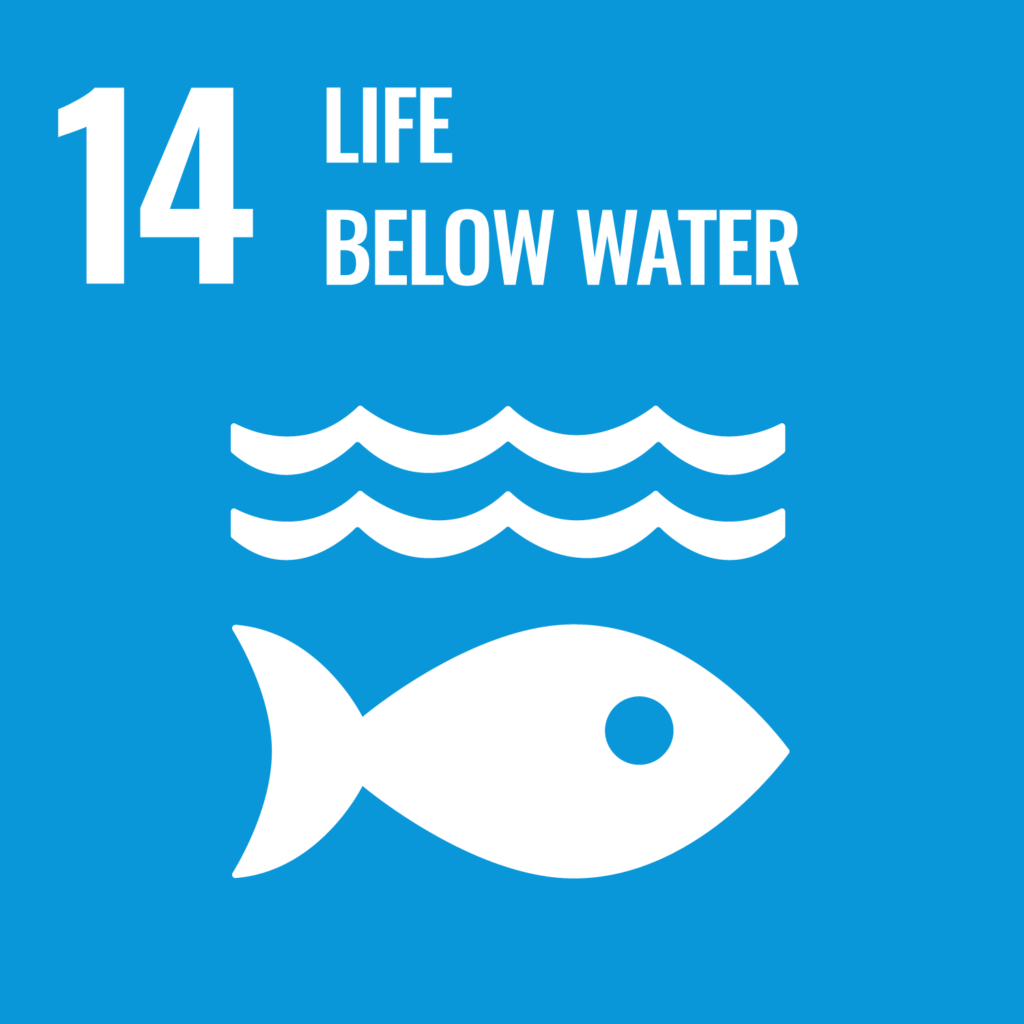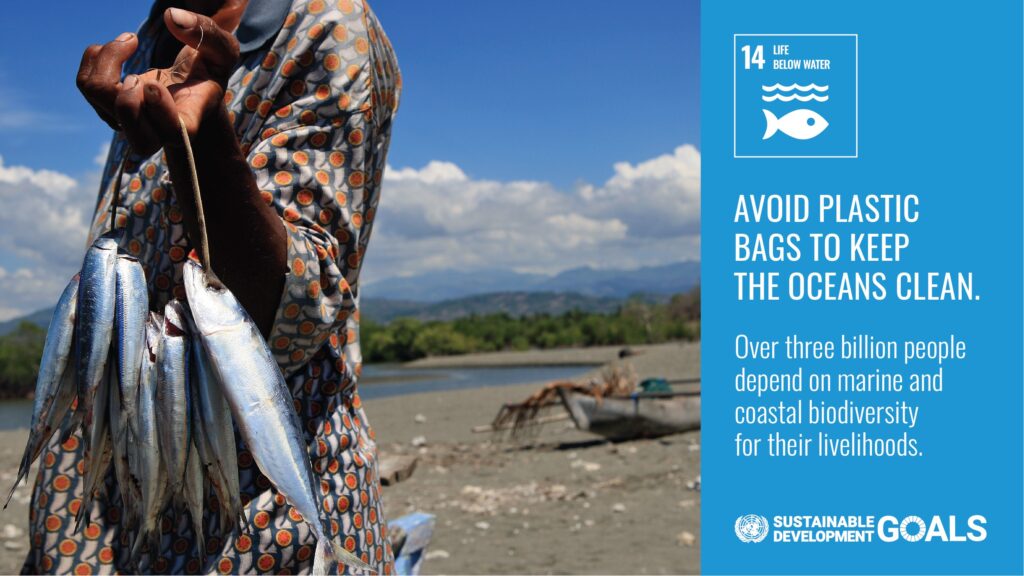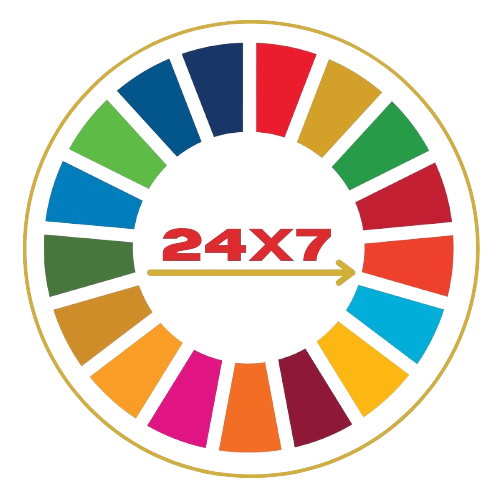
To conserve and sustainably use the oceans, seas and marine resources
Goal 14 is about conserving and sustainably using the oceans, seas and marine resources. Healthy oceans and seas are essential to human existence and life on Earth.
The Ocean is intrinsic to our life on earth. Covering three-quarters of the Earth’s surface, it contains 97 percent of the Earth’s water, and represents 99 percent of the living space on the planet by volume.
They provide key natural resources including food, medicines, biofuels and other products; help with the breakdown and removal of waste and pollution; and their coastal ecosystems act as buffers to reduce damage from storms. They also act as the planet’s greatest carbon sink.
Worryingly, marine pollution is reaching extreme levels, with over 17 million metric tons clogging the ocean in 2021, a figure set to double or triple by 2040. Plastic is the most harmful type of ocean pollution.
Currently, the ocean’s average pH is 8.1 which is about 30 per cent more acidic than in pre- industrial times. Ocean acidification threatens the survival of marine life, disrupts the food web, and undermines vital services provided by the ocean and our own food security.
Careful management of this essential global resource is a key feature of a sustainable future. This includes increasing funding for ocean science, intensifying conservation efforts, and urgently turning the tide on climate change to safeguard the planet’s largest ecosystem. Current efforts to protect are not yet meeting the urgent need to safeguard this vast, yet fragile, resource.

14.1 By 2025, prevent and significantly reduce marine pollution of all kinds, in particular from land-based activities, including marine debris and nutrient pollution
14.2 By 2020, sustainably manage and protect marine and coastal ecosystems to avoid significant adverse impacts, including by strengthening their resilience, and take action for their restoration in order to achieve healthy and productive oceans
14.3 Minimise and address the impacts of ocean acidification, including through enhanced scientific cooperation at all levels
14.4 By 2020, effectively regulate harvesting and end overfishing, illegal, unreported and unregulated fishing and destructive fishing practices and implement science-based management plans, in order to restore fish stocks in the shortest time feasible, at least to levels that can produce maximum sustainable yield as determined by their biological characteristics
14.5 By 2020, conserve at least 10 percent of coastal and marine areas, consistent with national and international law and based on the best available scientific information
14.6 By 2020, prohibit certain forms of fisheries subsidies which contribute to overcapacity and overfishing, eliminate subsidies that contribute to illegal, unreported and unregulated fishing and refrain from introducing new such subsidies, recognizing that appropriate and effective special and differential treatment for developing and least developed countries should be an integral part of the World Trade Organization fisheries subsidies negotiation
14.7 By 2030, increase the economic benefits to Small Island developing States and least developed countries from the sustainable use of marine resources, including through sustainable management of fisheries, aquaculture and tourism
14.A Increase scientific knowledge, develop research capacity and transfer marine technology, taking into account the Intergovernmental Oceanographic Commission Criteria and Guidelines on the Transfer of Marine Technology, in order to improve ocean health and to enhance the contribution of marine biodiversity to the development of developing countries, in particular small island developing States and least developed countries
14.B Provide access for small-scale artisanal fishers to marine resources and markets
14.C Enhance the conservation and sustainable use of oceans and their resources by implementing international law as reflected in UNCLOS, which provides the legal framework for the conservation and sustainable use of oceans and their resources, as recalled in paragraph 158 of The Future We Want

